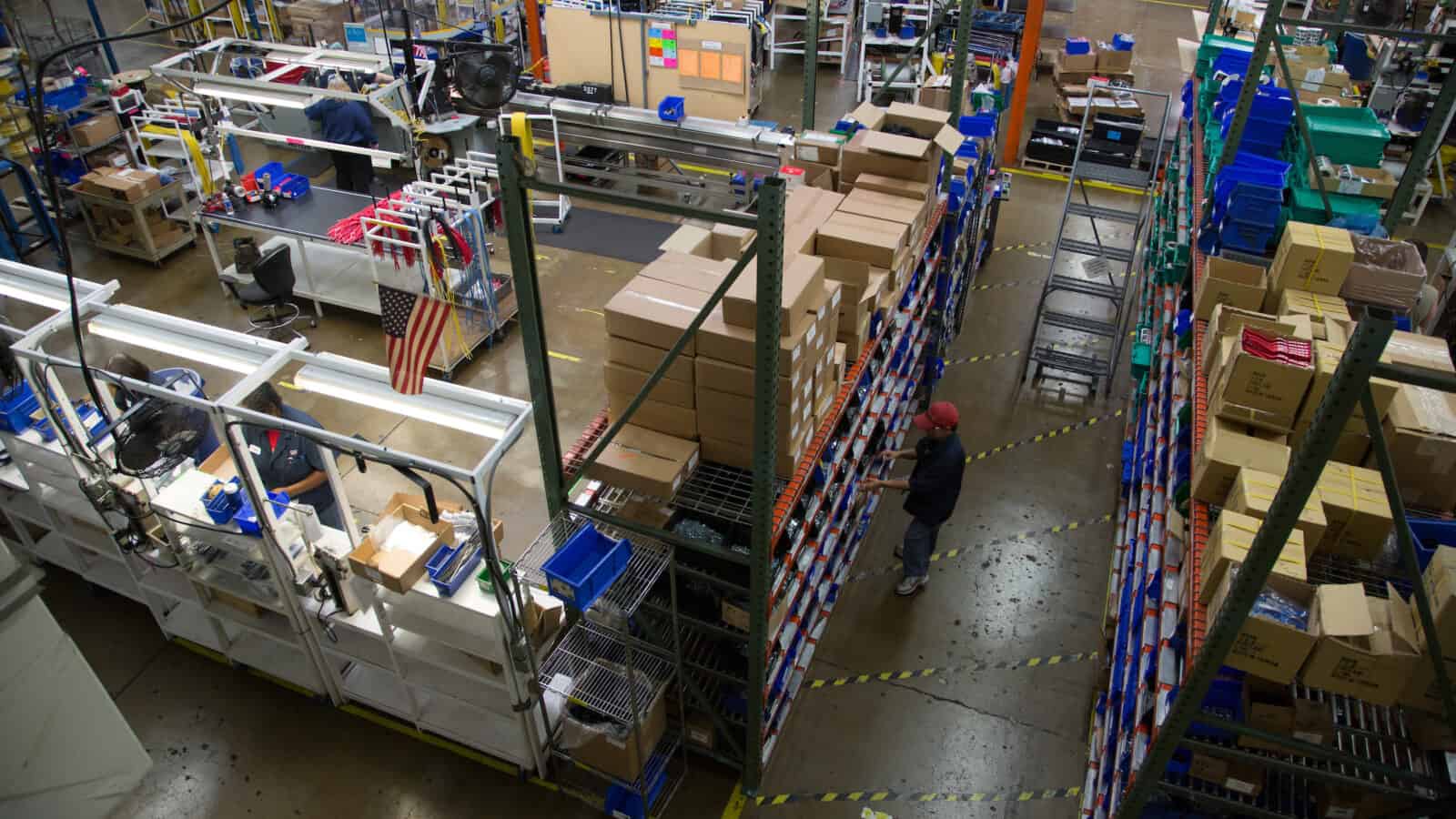“You’re Your Own Limit”: Andrea Tucker Talks Success at Smithfield Foods
Get the Latest News
Get involved
If you want to be like Andrea Tucker, just ask her how she got to where she is today—she’ll happily help you plot a path to professional success like hers.
Rising to the top: Tucker is a complex plant manager at Smithfield Foods in Tar Heel, North Carolina, the largest pork-processing plant in the world. But she didn’t begin there, and she wants other Smithfield employees to know it.
- “I started as an hourly employee on third shift, and now I’m running the plant,” said Tucker, a 2019 honoree of The Manufacturing Institute’s STEP Ahead Awards (now the Women MAKE America Awards). “If you want to be me, let’s put a plan together and work toward it. At Smithfield, if you put in the work, it gets noticed.”
Manufacturing from the start: Tucker, a Georgia native, grew up on a small tobacco farm. In 2000, a lifetime affinity for numbers, process and mathematics led her to answer an ad seeking an accounting inventory clerk at Smithfield.
- “For me, working in manufacturing kind of closed the gap of what happens after things are grown or made or after animals are raised,” Tucker said. “A passion was ignited in me: [for] the process flows, the ‘people’ side of things and how things work. I could use my love of math and make and see real change. From that day on, I felt like I could do something that mattered.”
“You’re your own limit”: Since joining Smithfield, Tucker has worked in multiple positions across the meat-packing company’s accounting and operations teams. Along the way, she received encouragement from management, and that backing has led her to become a trusted mentor to other employees.
- “[When I was an hourly worker], I was told, ‘You have a good grasp of how things work. You know how to motivate and inspire people. Have you thought of operations?’” Tucker recalled of her first career change within Smithfield. “Smithfield is a big advocate of ‘you’re your own limit.’ You’re not tied to one plant or position or department.”
- At the company’s urging, after 12 years in Tar Heel, Tucker took a position at Smithfield’s Wilson, North Carolina, facility as plant manager.
Women in manufacturing: The move “inspired me to see results, not only in processes but in other people, primarily women,” Tucker said.
- “For many [of the women at the facility], I was not only Andrea the manager but Andrea the counselor, Andrea the person I can talk to about this problem I’m having with my 13-year-old,” she said. “There were a lot of single moms.”
- The success stories among this contingent are many, Tucker said. Here’s one: Tucker noticed that an employee, a young mother, was struggling personally—and she learned that the woman was at risk of losing custody of her children. “I said, ‘Look, I know you have three kids, and this is not the life you wanted. I need you to be able to be that responsible parent. Smithfield has an employee assistance program; let’s get you enrolled. If I get your commitment that you’re ready for change, I will make sure you stay that course.’”
- The employee did. “She put forth the effort. She and her kids, they’re thriving. She’s even enrolled in one of our emerging leaders programs.”
Opportunities abound: Smithfield continues to create pathways to professional advancement for its employees. These include:
- A tuition reimbursement program;
- A mentorship program; and
- Women’s Connect, a mentorship program specifically for women.
Continuing to inspire: Tucker came back to Tar Heel earlier this year, in another step upward within the company. When she was first offered her current job, Tucker—despite having coached so many employees successfully—wasn’t sure she would be able to do it.
- “Then I told myself, ‘Think about all the stories where people said they never thought they could do more,’” she said. “It reminded me, ‘You reached out and touched so many people at Wilson, why are you not giving yourself the same opportunity in Tar Heel, back where you started?’”
The last word: Tucker has advice for those daunted by moving up the ladder at work. “At the end of the day, it’s just people,” she said. “You take it one day at a time, and you just try to touch the lives of as many people as you can.”



